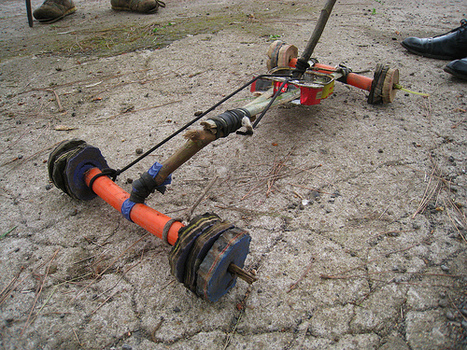"TED Talks Hans Rosling was a young guest student in India when he first realized that Asia had all the capacities to reclaim its place as the world's dominant economic force."
Regions, cultures and economies are not static in this era of globalization. However, in the United States we are accostumed to a position of prominence that is assumed to be a 'birthright.' The data presented here shows how countries such as India and China might "catch up" to the United States and United Kingdom later in the 21st century (2048?).



 Your new post is loading...
Your new post is loading...


















